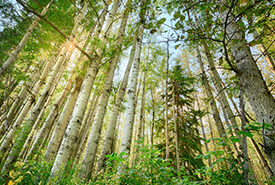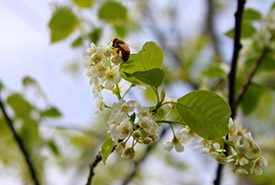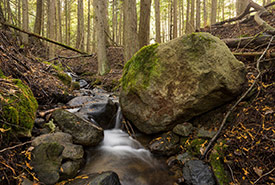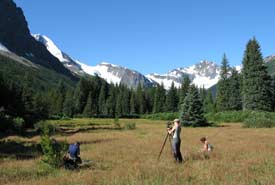We have forests to thank

Busenius property, Alberta (Photo by Kyle Marquardt)
We have forests to thank for playing many critical roles for nature and people
Forests are habitat for hundreds of species, powerful carbon sinks, water filters, oxygen producers and places of community, connection, recreation and refuge. However, many pressures, including unnaturally large and frequent wildfires, invasive species and habitat destruction, threaten these ecosystems, the benefits they provide and the relationships they support. While the Nature Conservancy of Canada (NCC) and our partners strive to continue to steward forested land throughout Canada, we wanted to reflect on how forests contribute to resilient landscapes.

Bee pollinating a cherry tree (Photo by Jaimee Morozoff, NCC staff)
We have forests to thank for providing bird habitats
Canada’s northern forests provide nesting habitat for an abundance of diverse migratory birds that winter in the U.S., Central America and beyond. From tiny warblers to large swans, it’s estimated that between three to five million birds migrate south from Canada’s boreal forest every fall.
We have forests to thank for helping to protect agricultural lands
Joint research between NCC and the University of British Columbia shows that conserving forest habitat close to agricultural lands supports native pollinator populations, which in turn can increase crop yields.

Cedar forests on the Midgeley property (Photo by Steve Ogle)
We have forests to thank for places to nurture the human spirit
Forests offer many opportunities for recreation, rejuvenation and connection. Spending even short amounts of time in forests can reduce feelings of anxiety and depression, while enhancing relaxation, social relationships and well-being.
We have forests to thank for all the ways they contribute to resilient landscapes
At NCC, we believe that nature is the most powerful solution to safeguard and restore our living world. Because nature makes it possible.


